Hospitals inquiry: QEUH conditions likened to 'third world country'
- Published
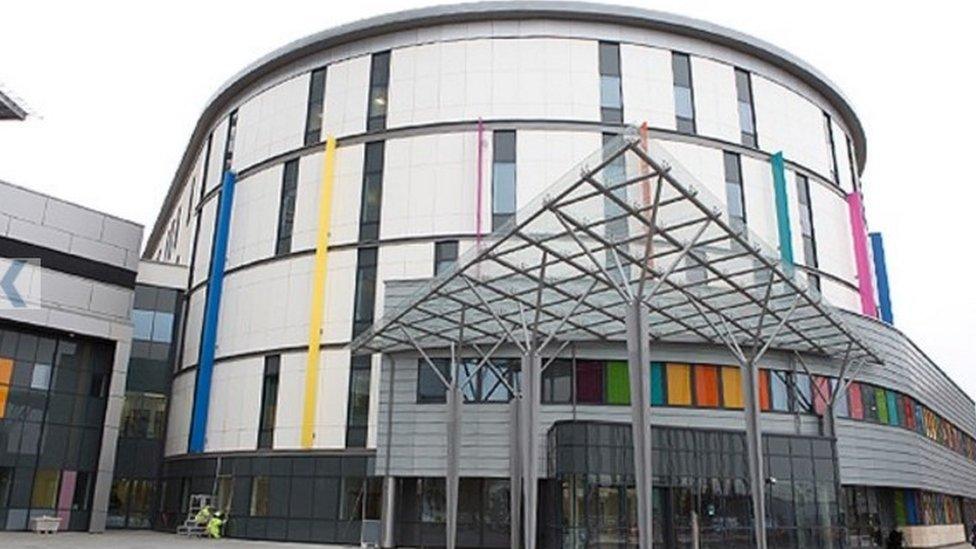
The Royal Hospital for Children in Glasgow opened in 2015
A mother whose son was being treated for cancer on a children's ward has likened the hospital environment to "a third world country".
Suzanne Brown told the Scottish Hospitals Inquiry that she and her 11-year-old son did not feel safe at two flagship hospitals in Glasgow.
This was because of ongoing concerns about the building's water hygiene.
Ms Brown said the families had been "kept in the dark" about what was happening.
The inquiry is investigating the construction of the Queen Elizabeth University Hospital (QEUH) and Royal Hospital for Children (RHC) in Glasgow, and the Royal Hospital for Children and Young People in Edinburgh.
Several families giving evidence have complained about water contamination at the RHC in 2018, a period when Ms Brown's son was receiving chemotherapy at the hospitals.
Speaking via video link at the inquiry, Ms Brown said: "It's scary enough when your child is sick but going into hospital thinking you're going to be catching something is a horrible, horrible feeling.
"Scotland is supposed to have the best water supplies.
"This is what you would expect in the news for third world countries, but it was like this in Scotland, in a super hospital."
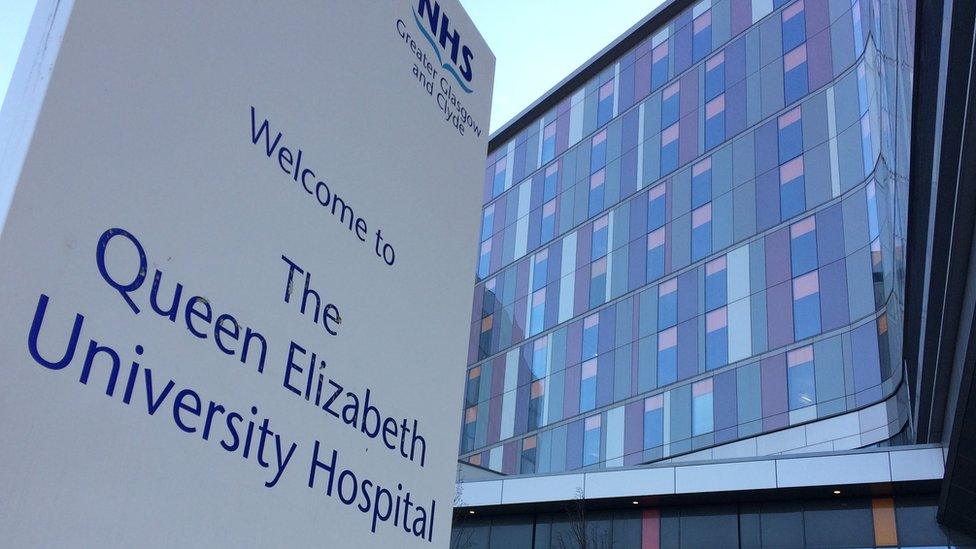
Ms Brown's son was diagnosed with Acute Lymphoblastic Leukaemia in December 2016 when he was six years old and attended both the RHC and QEUH regularly for treatment until his cancer treatment finished in March last year.
But it was not until 2018 when Ms Brown started noticing issues with the hospital's water supply.
Water dispensers were out-of-order and patients were being made to wash with bottled water due to showers being out-of-bounds, the inquiry heard.
Ward 2A and 2B where Ms Brown's son was being treated were closed and children were moved to the adult hospital.
Ms Brown said there were no facilities for children and it was like being kept in "solitary confinement".
Ms Brown also told the inquiry her son was put on a drug called Ciprofloxacin (Cipro) in the same year, which she claims is linked to preventing infection from contaminated water, despite never being told about the hospital's water issues.
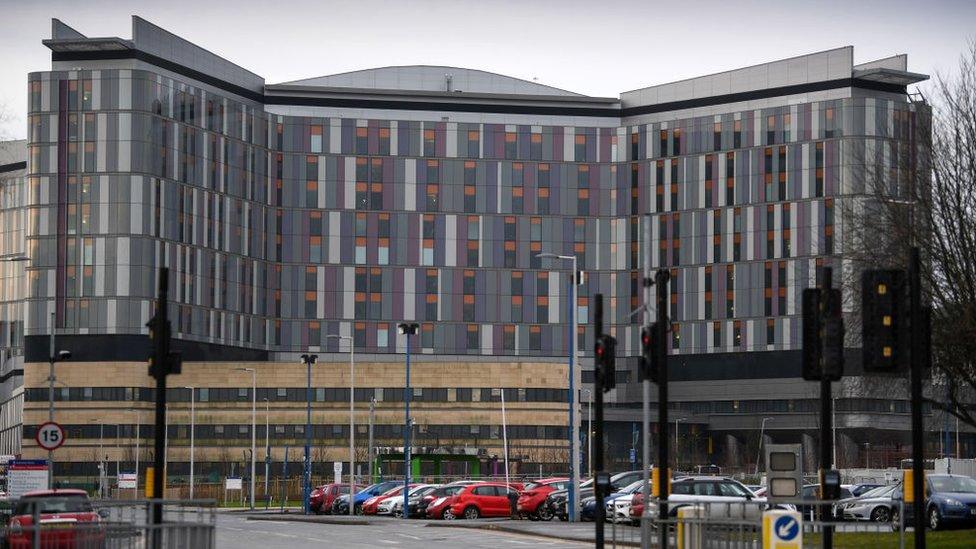
The Queen Elizabeth University Hospital in Glasgow opened in 2015
Alastair Duncan QC, counsel to the inquiry, asked Ms Brown about how the experience affected her and her family.
She said: "We were all in a panic.
"Everyone was wondering what was happening. We weren't getting answers from anyone.
"We were scared to go into the hospital because we didn't know what he was going to pick up."
She also told the inquiry that her son is still suffering from side effects from Cipro including sickness, bad heartburn, indigestion and sore tummies.
'They never told us'
In a closing statement, Ms Brown said she could not fault the nurses but communication from the hospital has been "extremely poor", adding in her statement: "I do not remember the hospital telling us anything about the water.
"We just were aware there was something in the water, a bug or germ, coming from the water, and the filters were there to stop it coming through the supply.
"This never came from them, it came from the news, not actually from them.
"They have never told us what it was, they've still never told us."
Earlier this year, an independent review found the deaths of two children at the QEUH campus were at least in part the result of infections linked to the hospital environment.
This included Milly Main, who was 10 when she died at the hospital in 2017. Milly's mother Kimberly Darroch described her death as "murder" when giving evidence to the inquiry.
The inquiry in Edinburgh, chaired by Lord Brodie, continues.
Related topics
- Published9 May 2022
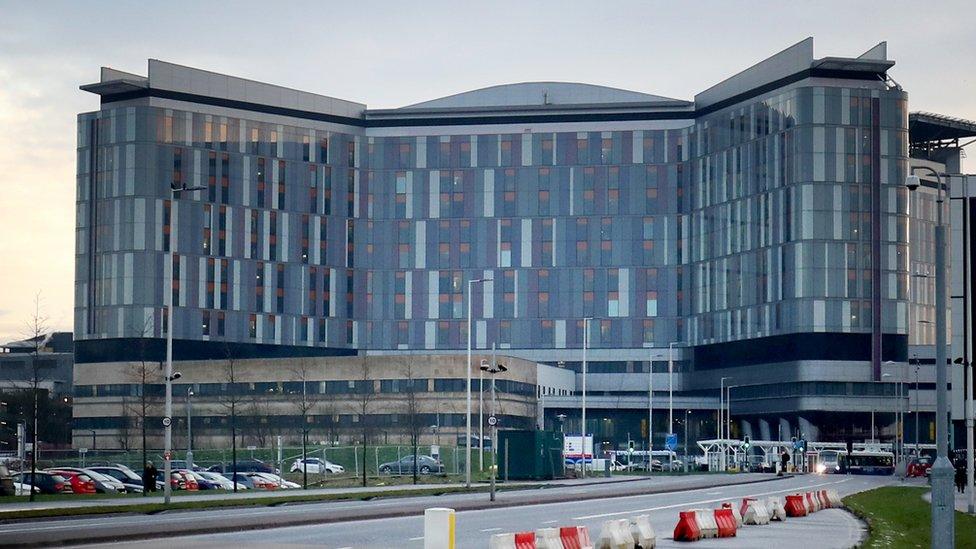
- Published22 September 2021
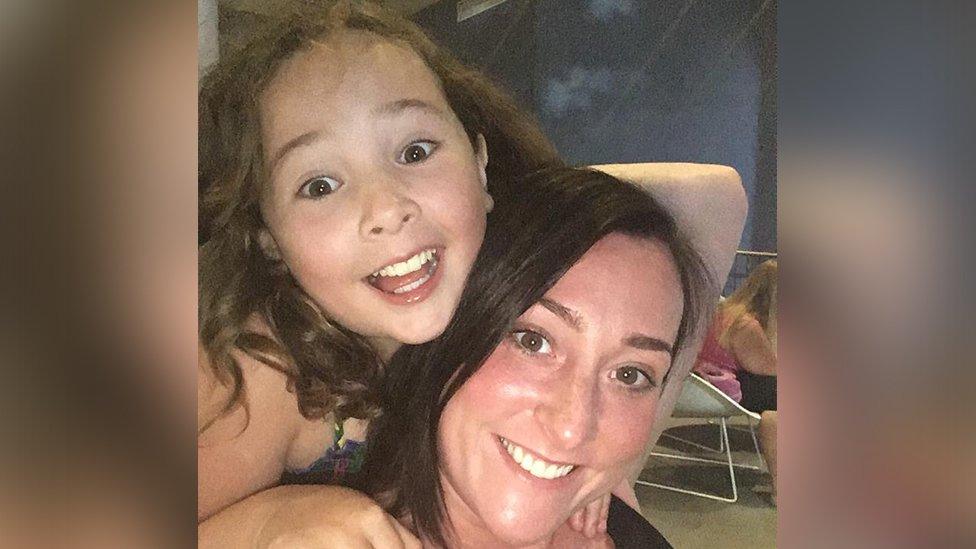
- Published21 September 2021
